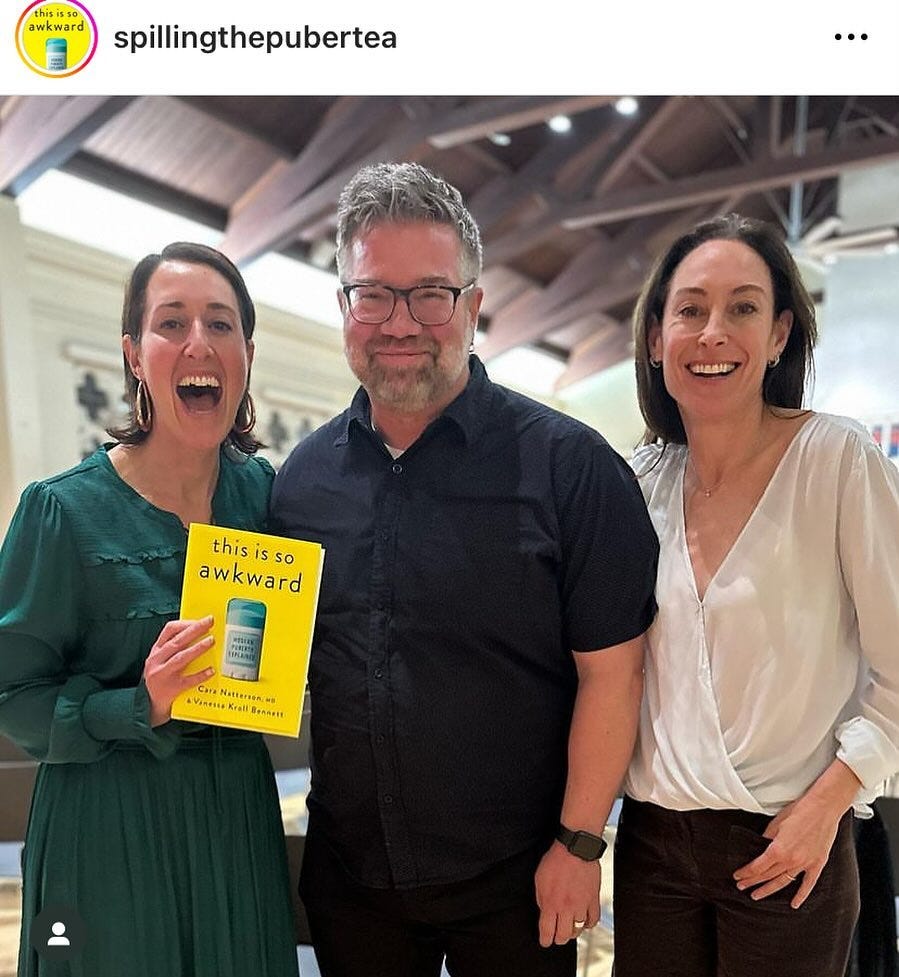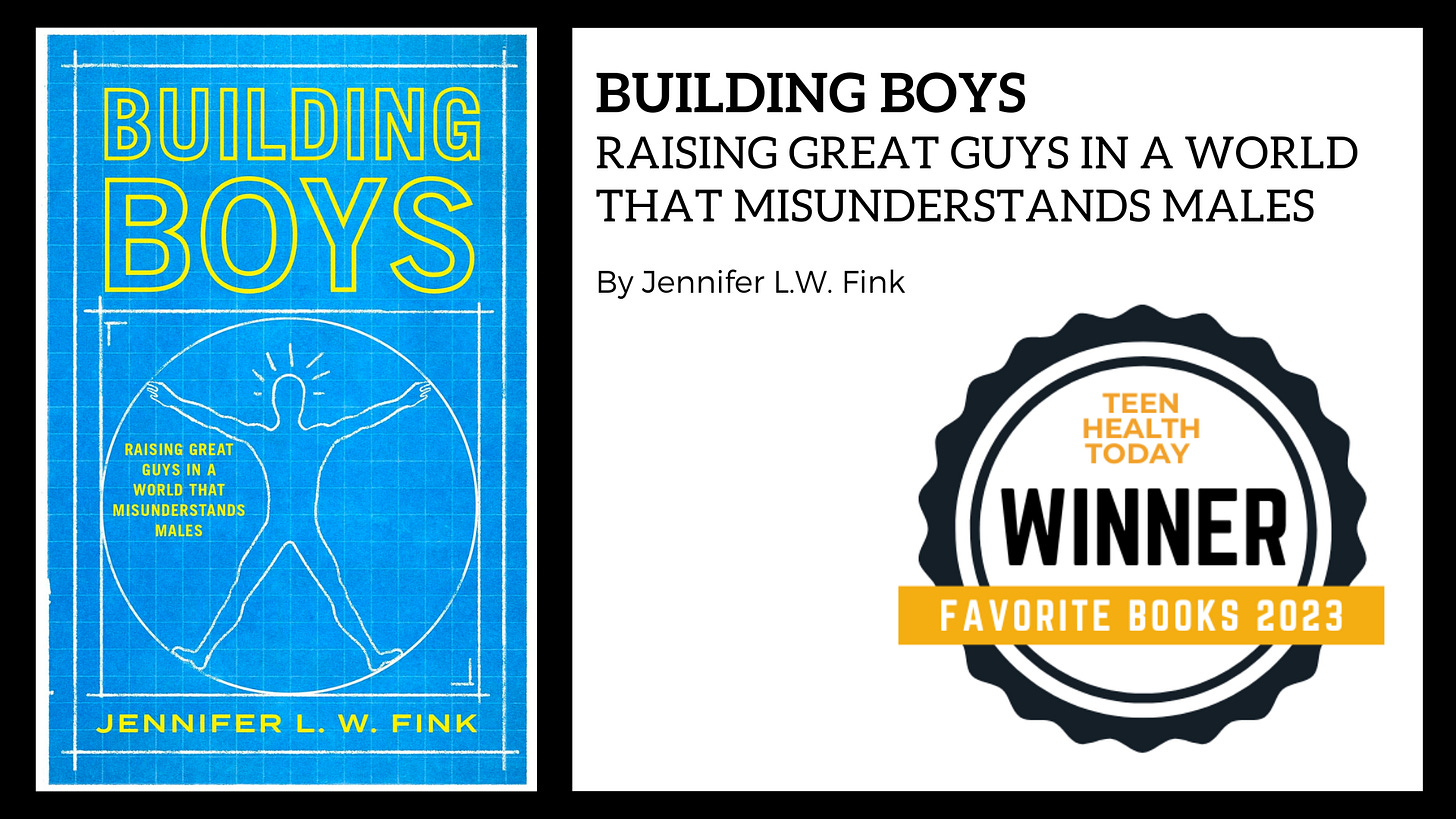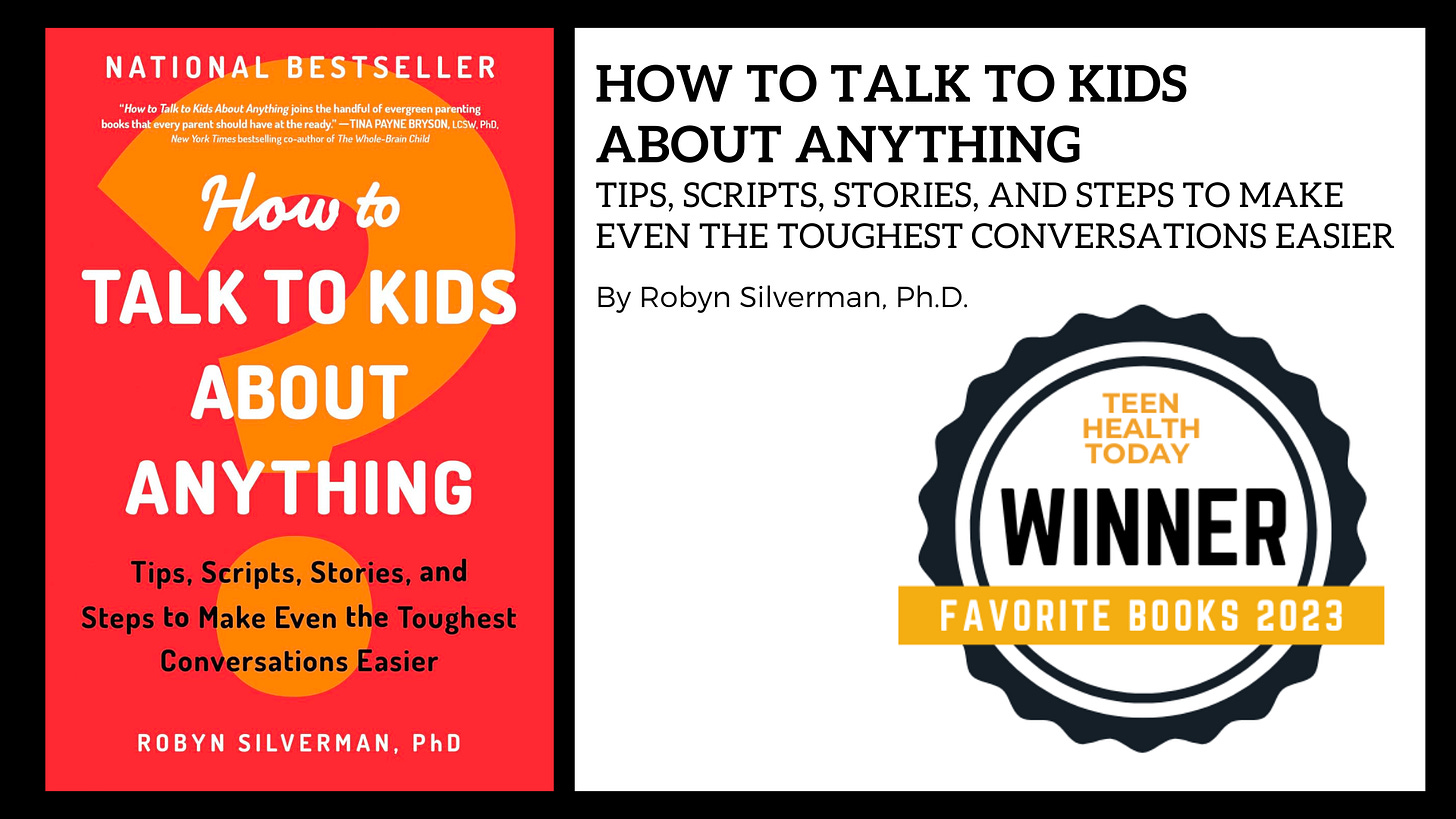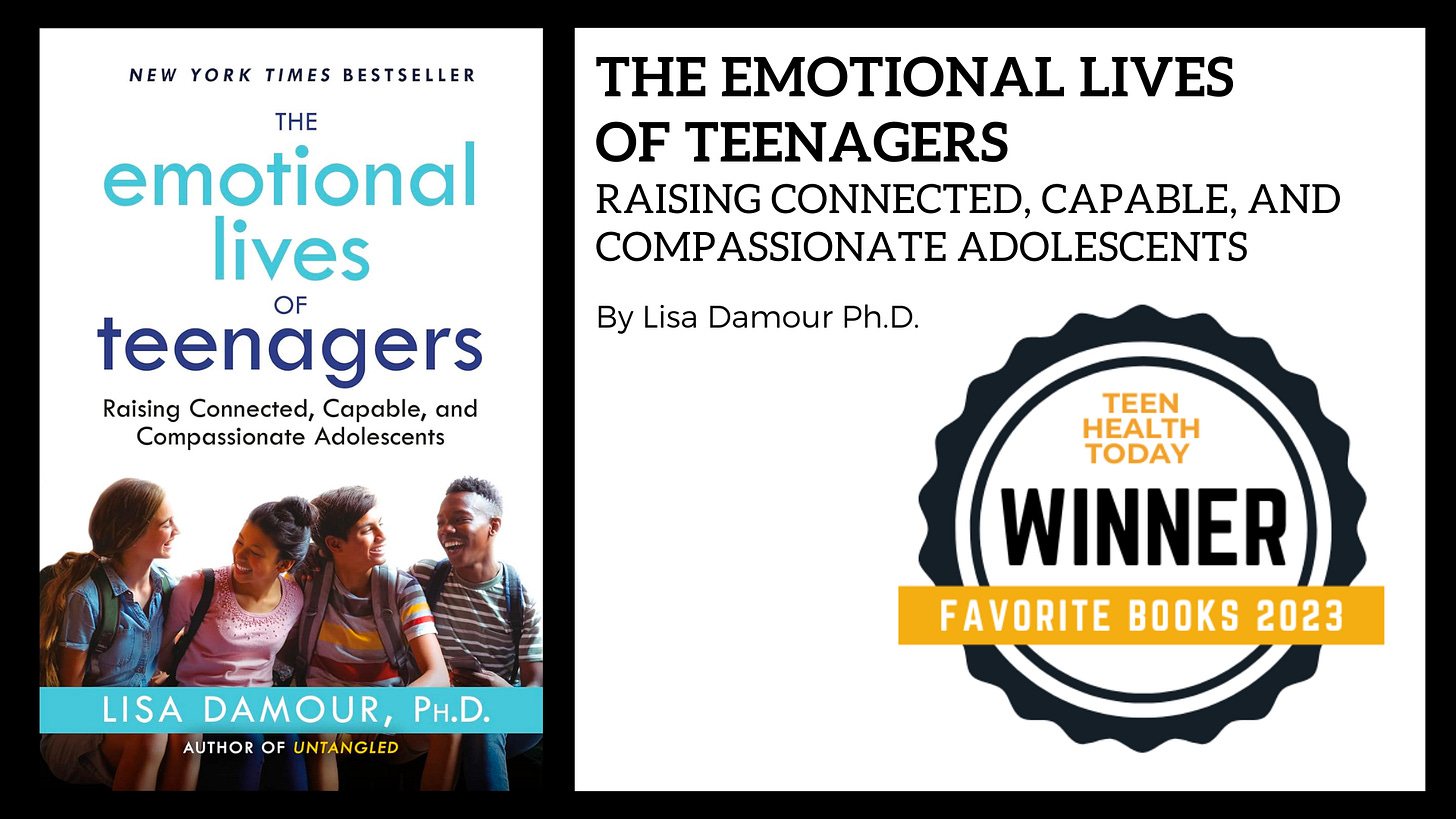Teen Health Today's Favorite Books Of The Year
Incredible - and incredibly useful - books about teens
Hi readers - thanks for all the feedback and support - it means a lot! Today’s newsletter is a special one for me, because I’m in the middle of writing a book, so I’ve been paying close attention to the books that were released this year.
Here are eight that I think are especially wonderful. I hope you get a chance to check them out! — Christopher
What’s this book about? This terrific book is about the many ways that puberty has changed, and how parents and educators today need to recognize and adjust to these changes. It provides a great mix of scientific research and data with incredibly practical advice that’s immediately useful. The authors encourage parents to keep trying, and provide a lot of reassurance that it’s ok to make mistakes and try again. It’s also very funny.
Why do I love it? The book includes insightful reflections from young people who are just past puberty, and “How to Talk About It” tips for each of the topics discussed, which range from pubic hair to porn. They really normalize talking about topics that can be hard to talk about.
How can I learn more? Watch an interview with the authors on CBS Mornings.
What’s this book about?
is here to bring some wisdom and perspective to parents’ worries about youth and technology. She answers questions like “Are colleges really stalking kids’ social media posts?” and asks how helpful it is for families to get 24/7 updates on their children’s homework and grades.Why do I love it? I appreciate how much she really digs into questions around sexuality and consent, and how she encourages adults to recognize that technology and photos are part of dating now, and we need to talk to teens about how to use them safely.
How can I learn more? Read “Demonizing Social Media Isn’t the Answer to Online Safety, a New Book Argues” in the New York Times, or listen to “Sexting is Safer Sex” on the Burnt Toast podcast.
What’s this book about? Drawing on what she’s learned as the co-host of the On Boys podcast and from years of parenting boys herself,
provides a ton of practical advice for parents who are worried about raising boys well today.Why do I love it? I appreciate how empathetic Jennifer is towards parents, recognizing the many fears and concerns they are likely holding about raising boys, and providing useful advice about how to keep those boys close.
How can I learn more? Read a sample chapter from the book.
What’s this book about? Psychologist Robyn Silverman shares the knowledge she’s accumulated from years working with kids and hosting the How to Talk to Kids About Anything podcast to provide practical suggestions for how to handle some of the most challenging topics that come up while raising kids.
Why do I love it? There are scripts that suggest the exact words to say to talk when discussing topics like divorce, friendships, money, death, and sex, along with mini-worksheets to help adults clarify their own values and beliefs.
How can I learn more? Read this great Q + A in
’s newsletter
What’s this book about? Yelling, crying, falling silent - It’s true that teenagers express a lot of emotions. Some adults make jokes about them or dismiss them as just side effects of changing hormones. Lisa Damour takes an entirely different stance - she recognizes teens as people who are often incredibly sensitive to the world and the people around them, and who are doing the best the can to navigate many rapid changes over which they often have little control.
Why do I love it? This book has the right mix of research, stories, and practical advice, and I appreciate the attention it gives to gender and emotion. The techniques Damour recommends to help adults get better at listening to teens are especially great.
How can I learn more? Read “The Parent of a Teen-Ager Is an Emotional-Garbage Collector” in The New Yorker.
What’s this book about?
takes a long, hard look at all the ways we talk about food, diets, health, and kids in our homes and in our classrooms. Rich with data and detail, it’s a book that will really get you thinking.Why do I love it? Attitudes about fatness and bias against fat people are baked into so many aspects of our lives that they are often difficult to see, and people don’t always understand how harmful these attitudes can be. This book pulls them all out for close examination.
Fun fact: Virginia interviewed me when she was researching the book’s chapter on “Diet Culture in the Classroom,” and I am so impressed with how it turned out. I wish every health teacher in the country would read it.
What’s this book about? Judging by how often they pull me aside to ask for advice, parents today are struggling to keep up with the sexual issues confronting young people. Porn, nudes, deepfakes, consent - it’s a lot. This book is designed to help adults understand what’s going on now, and how to address it with care and calm.
Why do I love it? Author Debby Herbenick is a real expert on these topics, who is great at helping parents understand research findings and apply them to real life situations. Her students at Indiana University help her keep up on what dating is like now, and the two lawyers who contributed to the book help clarify the legal issues that sometimes come up in these situations.
What’s new here? There’s a whole chapter about the rise of choking and other types of rough sex amongst teens and young adults. The book has helpful scripts for how to talk about these topics, with an emphasis on consent and safety. Another chapter, “Sex on the Spectrum,” provides a lot of great ideas for how to talk about sexuality with autistic youth.
What’s this book about? School counselor Phyllis L. Fagell LOVES middle school kids, and it shows. This book is all about resiliency, and identifies 12 specific skills (like balance, daring, flexibility, and optimism) that help middle schoolers bounce back from challenges, support one another, and create a more caring community.
Why do I love it? The book provides lots of practical tips that encourage parents and educators to see the positive aspects of the changes middle school youth go through, and how adults can stay engaged with them during these years.
How can I learn more? Listen to this great Puberty Podcast interview.
If you enjoyed this post, click the ❤️ or 🔁 button on this post so more people can discover it on Substack. 🙏🏼














What a pleasant surprise to find my book here (among greats!) Thank you, Christopher. Parents & others: This truly is a fantastic list. I've read most of these and I'd say it's near impossible to read these books and not be a better parent/teacher/coach/mentor to teens.
You’re so helpful and so inspirational to me- thank you!